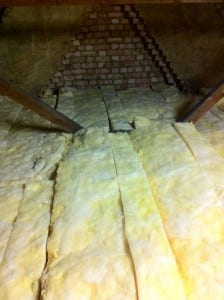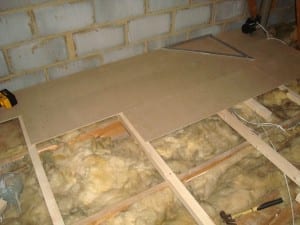 Insulating your loft should be a no-brainer. It means not only huge savings on your energy bills; it also slashes your carbon footprint.
Insulating your loft should be a no-brainer. It means not only huge savings on your energy bills; it also slashes your carbon footprint.
So why doesn’t everyone have it done? People on a low income may think it’s too expensive to pull out enough money at one time. But that isn’t necessarily true.
The Importance of Loft Insulation
Any part of your home that isn’t adequately insulated is going to vent heat at such a rate that you may as well be burning money, but that’s particularly true of your loft. The reason for this is simple physics. Hot air rises, so it’ll gather up at the top of the building and find any way out it can.
The Energy Saving Trust has estimated that loft insulation can save an average detached house about £250 a year. Since loft insulation costs around £300, that means you go into pure profit after not much more than a year, while the insulation should be good for nearly 40 years.
In fact, though, it doesn’t need to cost you anything.
Loft Insulation Grants
Many people, especially those who would struggle most to find the initial outlay, qualify for government grants for loft insulation. The large energy companies have an obligation to offer these under the Energy Company Obligation, or you can apply for a government grant directly and have the work done by the company of your choice.
To qualify, you have to live in a house or flat that you own or rent privately. Homes rented from a council or housing association don’t qualify, since these bodies have an obligation to provide loft insulation themselves — so if they haven’t, you’re within your rights to pressure them.

You also have to be receiving one of a number of government grants, such as pension credits, income-based job seekers allowance or universal credit.
Get a Professional Job
The other way to save money on your loft insulation, of course, is to do it yourself, but that’s a risky strategy. A good DIYer may be able to do a just-adequate job of loft insulation, but there’s a lot more to it than just packing the material between the joists. It’s important, for instance, to know what to do with electricity cables and water pipes, or you could be facing fire or flood.
In any case, if you’re finding it hard to afford £300, you probably qualify for a government grant. If you get in touch with us, we’ll be happy to go through the options with you.



